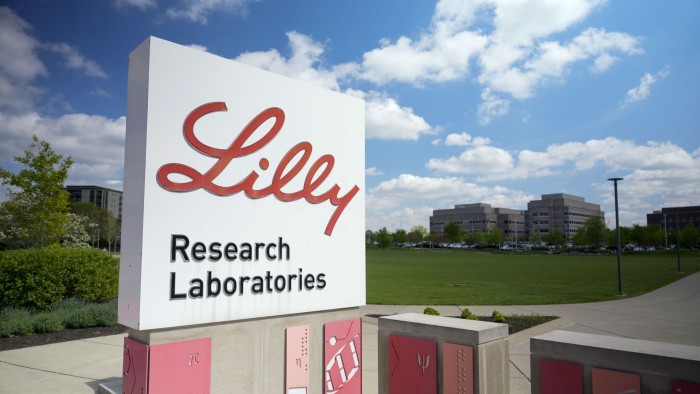Unlock the Editor’s Digest for free
Roula Khalaf, Editor of the FT, selects her favourite stories in this weekly newsletter.
Eli Lilly has struck a deal to buy Crispr gene-editing start-up Verve Therapeutics for up to $1.3bn, the latest acquisition by the world’s most valuable drugmaker as it seeks to boost its pipeline of experimental medicines.
The US drugmaker said on Tuesday it would pay roughly $1bn upfront in cash for Verve, which is developing a gene-editing therapy to treat bad cholesterol, and a further $300mn based on the biotech company achieving certain clinical milestones.
The deal values Verve’s shares at $13.50 if all the performance milestones are met, more than double its average share price over the past 30 days. The transaction is among the first buyouts of a listed biotech harnessing the much hailed Crispr gene-editing technology.
Verve’s main gene therapy, which succeeded in phase-one trials earlier this year, targets a PCSK9, a gene linked to cholesterol levels and cardiovascular health. The drug, which will enter phase-two trials this year, could be used to treat a genetic form of cholesterol as well as early-stage coronary artery disease.
Eli Lilly’s announcement of its purchase of Verve, which confirmed an earlier report in the Financial Times, follows a tough spell for gene-editing start-ups and comes during a slow period for dealmaking in the pharmaceutical industry. Despite some big drugmakers needing to address the imminent expiration of lucrative patents, companies have decided not to spend on large mergers and acquisitions.
Shares in Verve jumped to just above $11 in pre-market trading, but remain far below their level just a few years ago, having surged to a record high of $74 in 2021 during the peak of hype around emerging gene therapy treatments.
The industry faces market turmoil stemming from the threat of tariffs under US President Donald Trump and regulatory uncertainty caused by vaccine sceptic Robert F Kennedy Jr’s position running the US health department.
However, there have been signs in recent weeks of a pick-up in biopharma dealmaking activity. French drugmaker Sanofi this month struck an up to $9.5bn deal for immunology biotech Blueprint Medicines, while Bristol Myers Squibb agreed an up to $11.1bn partnership with German drugmaker BioNTech to develop a new cancer immunotherapy.
Unlike its rivals, Eli Lilly does not face the threat of shrinking revenues from impending patent expiration because of the huge windfall from its diabetes and obesity medicines Mounjaro and Zepbound, which are expected to generate more than $30bn in sales between them this year, according to analyst projections.
Eli Lilly has taken a selective approach to dealmaking, focusing on experimental medicines instead of commercial-stage drugs. This year it has struck deals worth up to $2.5bn for cancer biotech Scorpion Therapeutics and up to $1bn for pain specialist SiteOne Therapeutics.
Eli Lilly’s acquisition of Verve is expected to close in the third quarter of this year. Kirkland & Ellis provided advice to Eli Lilly, while Centerview Partners, Guggenheim Securities and Paul Weiss served as advisers to Verve.


